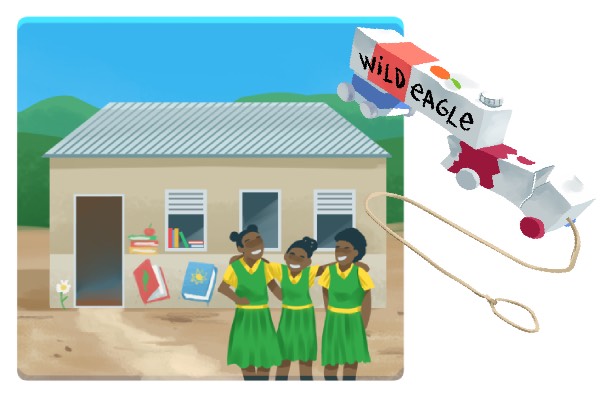On a hot and glistening summer morning, Mother hears the laughter of children coming from behind the trees in the backyard. She looks out at the playing children, sees her daughter and asks “You pick up you book from marnin?” The daughter knows it is time to say goodbye to her friends, end their activities and find herself a book to read or study.
Next to cleaning, being seen with a book is one of the most important things in Jamaican households. Day in, day out, Jamaican parents continuously stress and instill the importance of obtaining a good education. Play can wait and it must. A system heavily adapted from our English colonizers, Jamaica takes great pride in and even often alludes to being amongst “the best” in the world. An education is said to provide an opportunity for a different life from the one mom and dad were born into. As broken as the grammar is in demanding the termination of play, so too is the appearance of being seen with a book, which oftens lacks one’s engagement and/or comprehension.
The young girl sits on the bed in her bedroom to read one of the several summer book assignments, Little House on the Prairie, as she dozes on and off after having read a few lines, maybe even a few pages. She then emerges from the room, having accomplished the task of the day, that is, being seen with a book. No one asks any questions or expresses interest. This day is repeated for the entire summer of that year. The young girl never finishes the book nor does she comprehend anything that took place on any of the pages she read.
Upon returning to school, the girl vaguely remembers the teacher’s review of the summer reading assignments and there she feels a sense of victory for having gotten away with pretending to read the book assignments. It is not because she didn’t want to, but because she didn’t know how to ask for the help she desperately needed and thus, she hid her shame. She spends the entire school year in the shadow of her peers, careful to avoid calling any attention to herself lest she be called upon to read aloud during reading comprehension lessons. To her astonishment and humiliation, she fails the reading evaluation at the end of the school term. Her punishment is her removal from the leading class and being placed in the class below, the following school year.
She is left to her own devices and so a year goes by with no one being aware that she has fallen behind, not even her mother. The young girl pushes to get back in line and to become what is expected of her, to be back in the leading grade for the next term. She keeps her shame and secretly accomplishes her feat alone. The year has made her realize how “the rest” lives — neglected and forgotten. This will not be the first time she fails alone. Her victory back has revealed to her how to get by and be carried along, to be invisible. She has learned early, the importance of expectations and appearances. She was in the leading class in Grade 2, then fails in Grade 3 and moves on to victory in Grade 4.
The excitement of this academic achievement is short-lived, as it was never supposed to happen. Imperfections are just not welcomed here.

